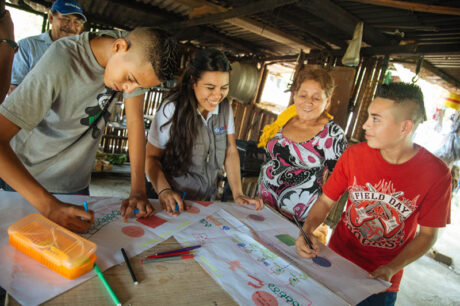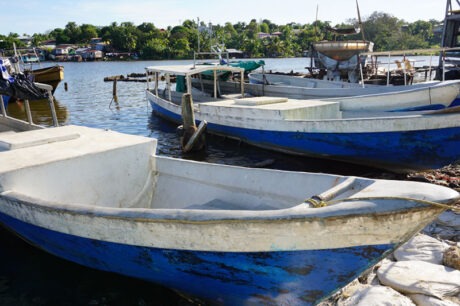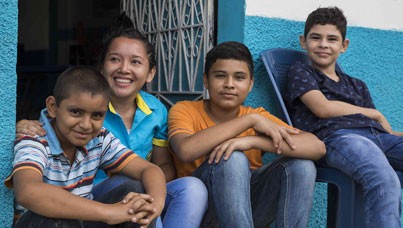The Community, Family and Youth Resilience program identified and worked with families and youth who were empirically at the highest risk of becoming involved in crime and violence.
The program, funded by the U.S. Agency for International Development, assessed youth risk through the Youth Service Eligibility Tool (YSET), which measures risk across nine factors at a family, peer and individual level.
Youth were matched with interventions based on their level of risk. These interventions increased protective factors or “resilience”. These initiatives included civic activities to build social and leadership skills, workshops to increase youth workforce readiness, community activities that promote positive youth-police contact, and campaigns to challenge those gender norms which contribute to an environment permissive of violence.
The program also reached youth at higher levels of risk—those who are leaving the juvenile justice system—with targeted support to improve their chances of reintegration.
Based on evidence and proven success in Central America, including the USAID-funded Proponte Mas program, the Community, Families and Youth Resilience program reduced rates of juvenile detention and built community safety and cohesion in the areas where it operated.
Creative implemented the program in partnership with international and local organizations with expertise in evidence-based approaches to building the capacity of governments, communities, and local service providers to deliver prevention services to at-risk youth. These groups included the Pan American Development Foundation, the University of Southern California and YouthBuild International.



